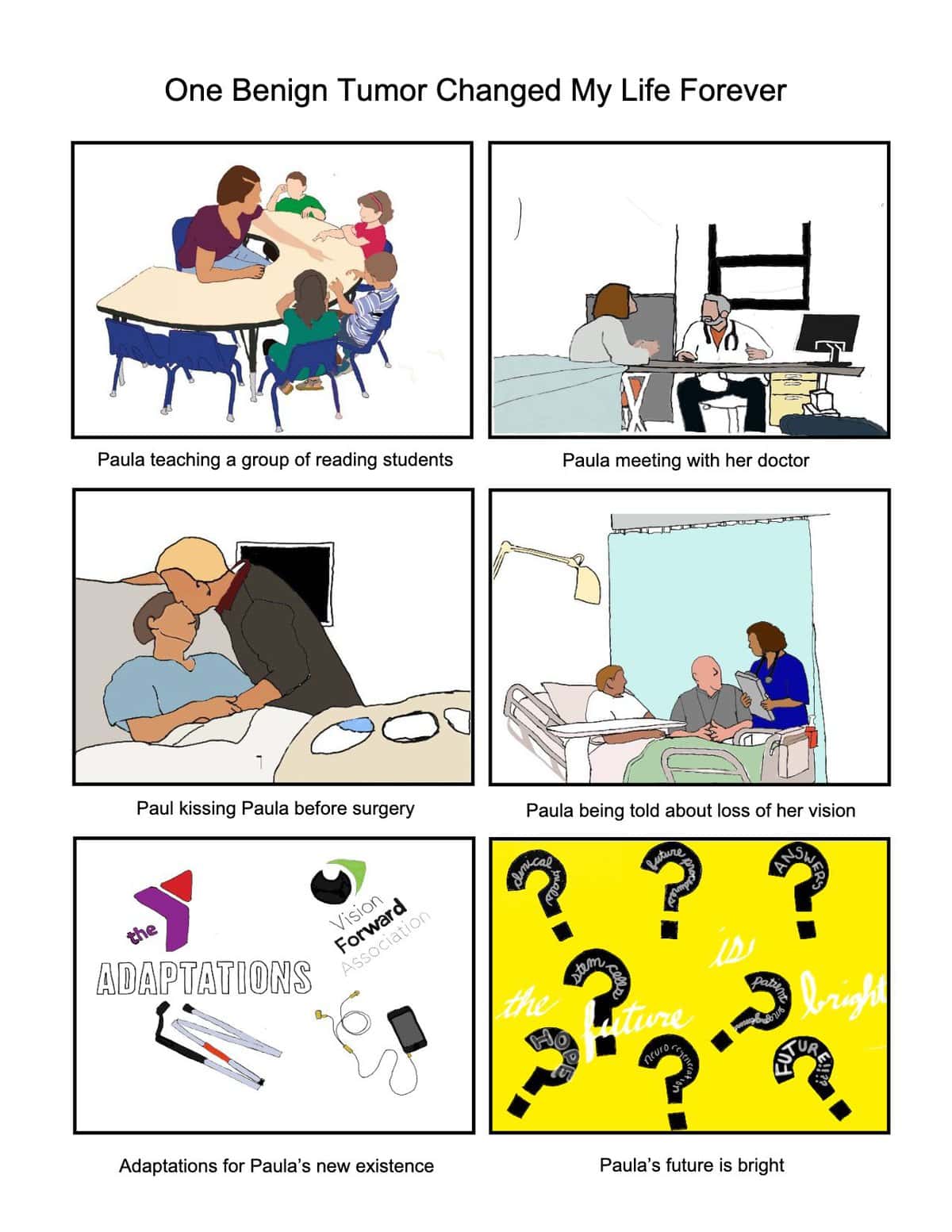One Benign Tumor Changed My Life Forever

Her doctors encouraged her to have it removed because it was growing. On the day of her surgery, she kissed her husband before going to surgery, not knowing this would be the last time she would see his face in the same way. After several hours of surgery, they woke Paula up in recovery, and she couldn’t see. They took her back to surgery to repack the nasal cavity, which gave her some improvement.
During the next six weeks she developed both bacterial and viral infections which stopped and worsened the improvement of her eyesight. She has had many readmissions to the hospital since that time for multiple reasons, including seizures. As Paula regained her strength, she also regained her desire to teach. This has led to her using many adaptations that can help her manage her new existence. Her positive attitude has helped her share her story and also research ways to improve her life. She believes her future is bright.
About this comic: Paula Bartel is a member of the Patients Engaged in Education and Research (PEER) Group at the University of Wisconsin-Madison*. She came up with concepts and images for this six-word story, which is illustrated in six frames with the help of Victoria Lyons (illustrator), her niece and the granddaughter of Rosie Bartel, the Patient Coordinator of the PEER group and a member of The Beryl Institute Global Patient and Family Advisory Council (GPFAB).
*The project described was supported by Dr. Nasia Safdar’s grants at the University of Wisconsin-Madison: the Clinical and Translational Science Award (CTSA) program, through the NIH National Center for Advancing Translational Sciences (NCATS), grant UL1TR002373, and grant number R01HS026226 from the Agency for Healthcare Research and Quality (AHRQ). The content is solely the responsibility of the author and does not necessarily represent the official views of the NIH or the AHRQ.
